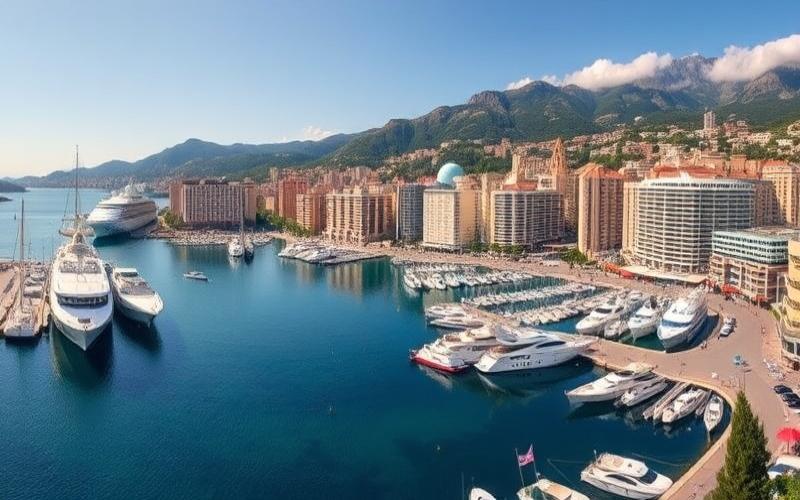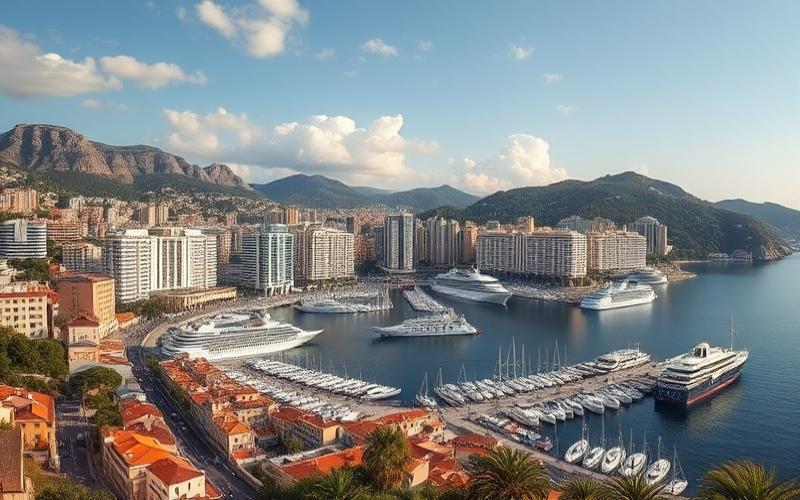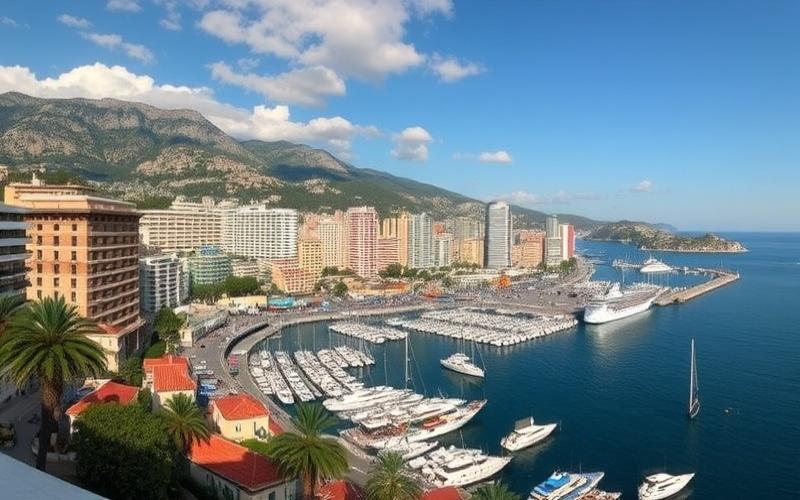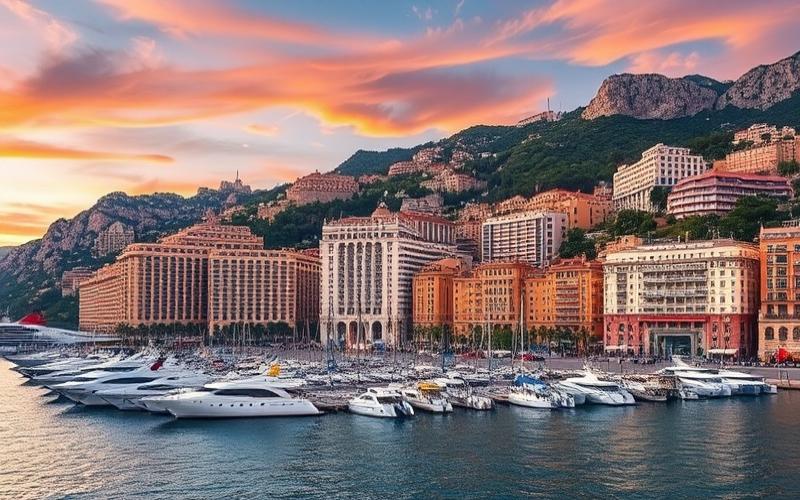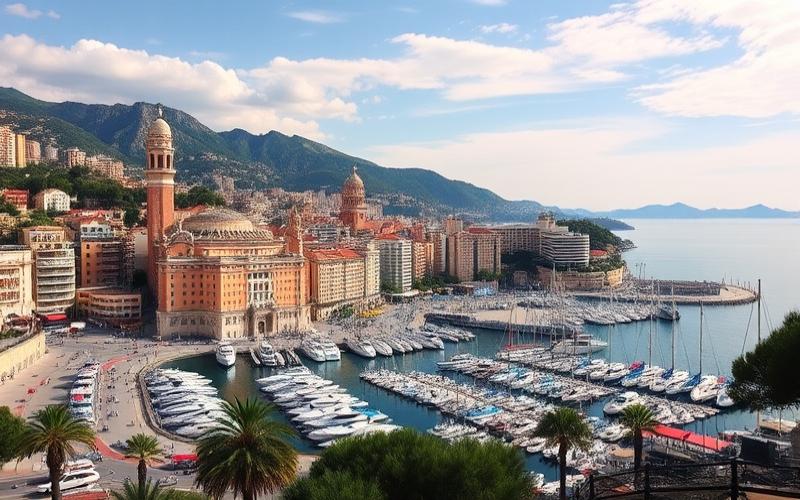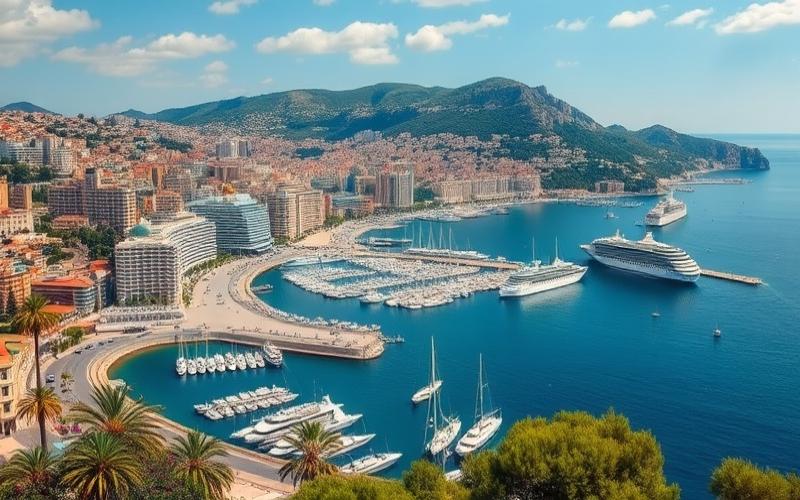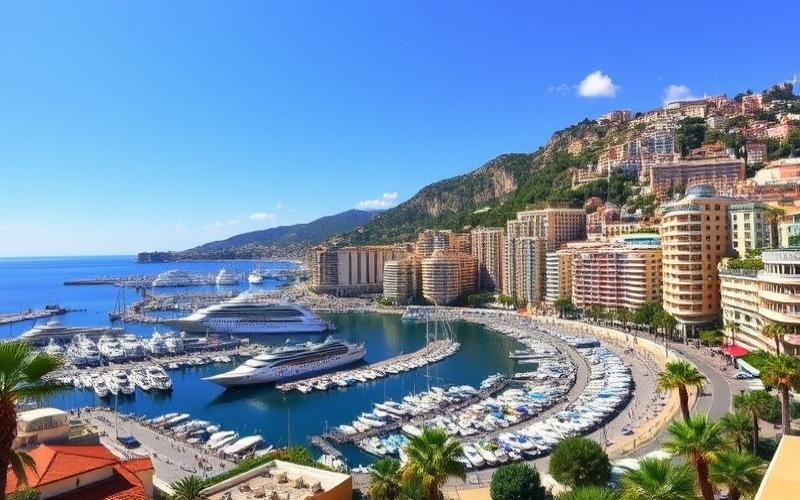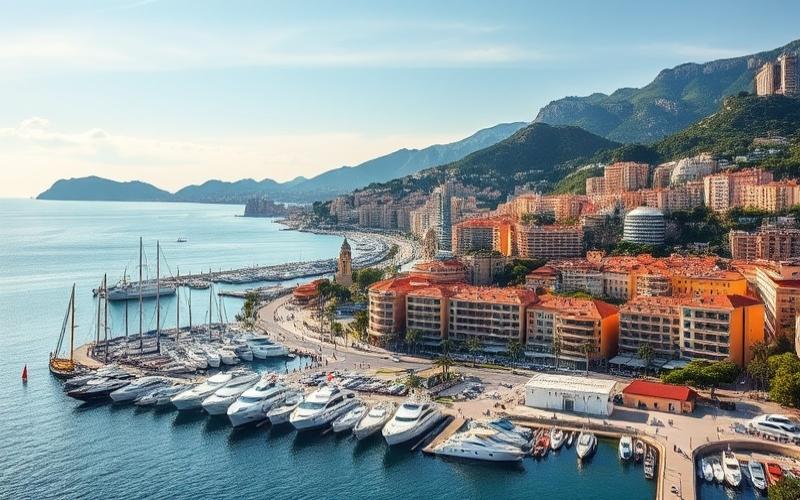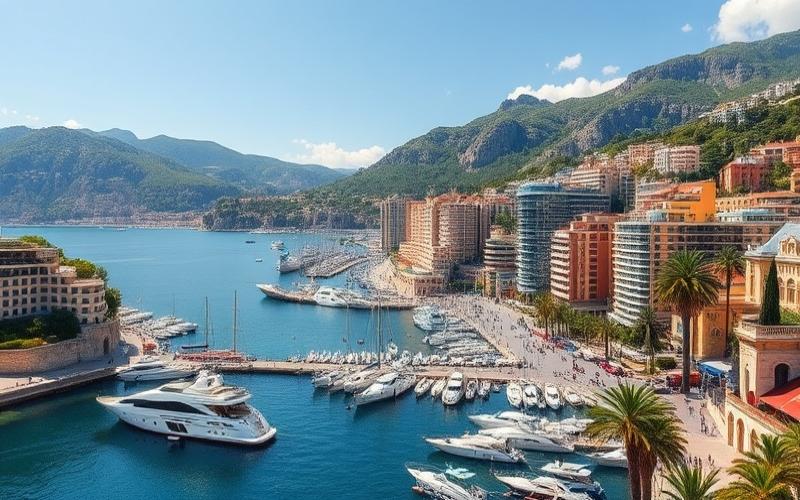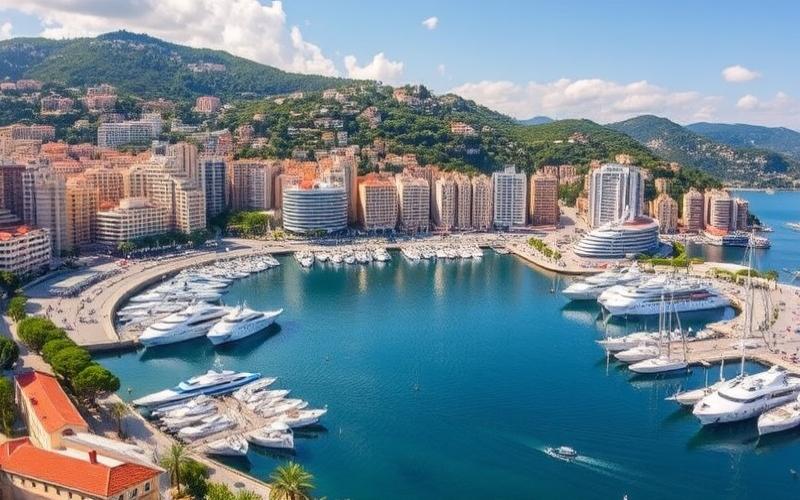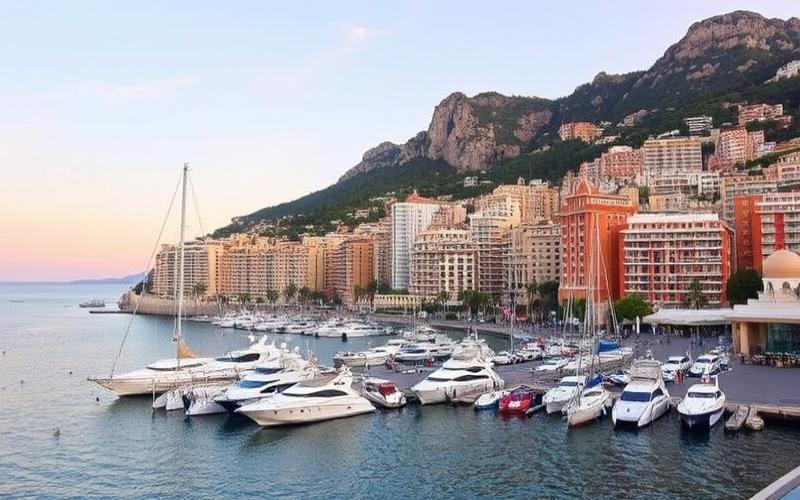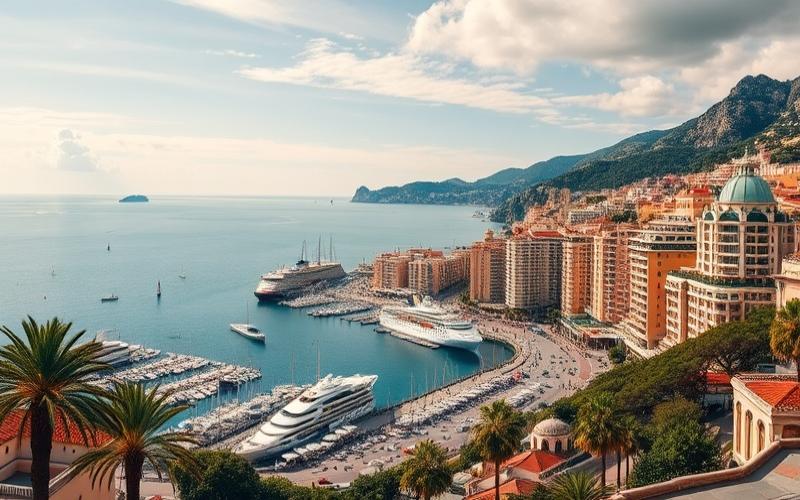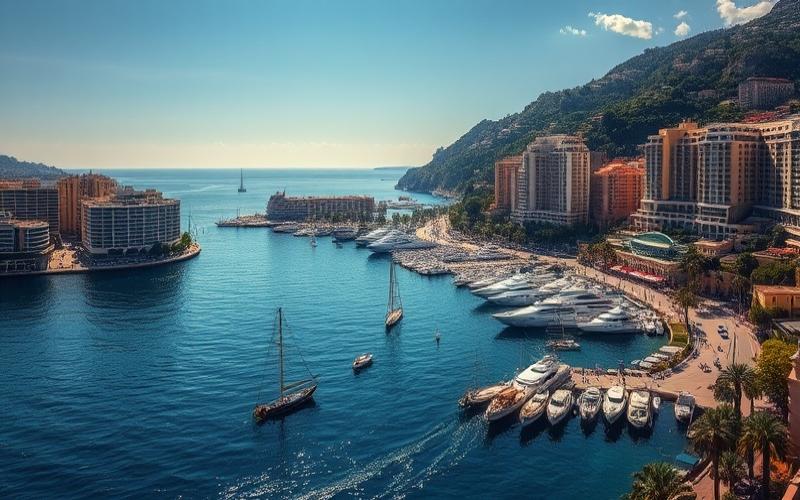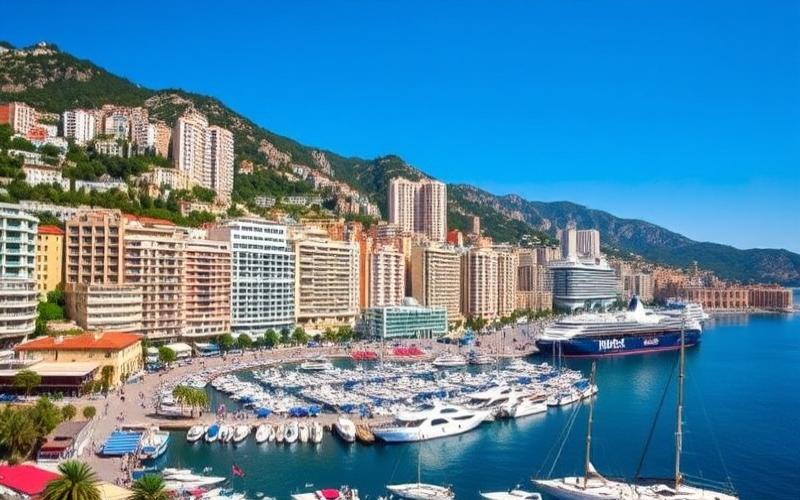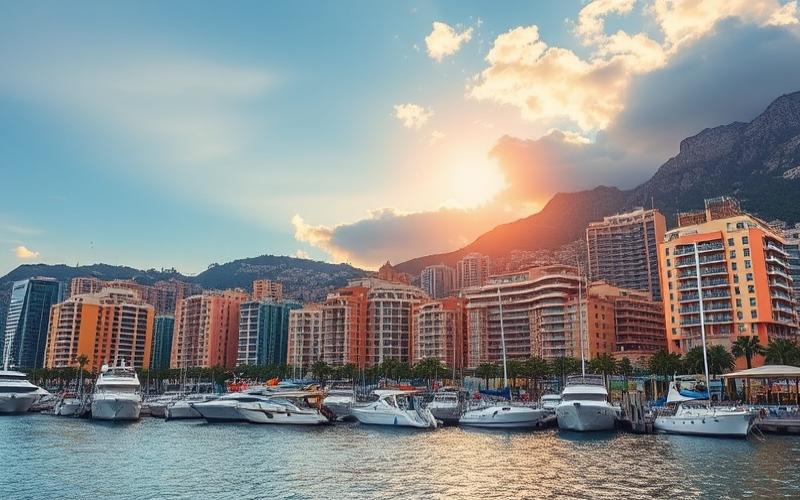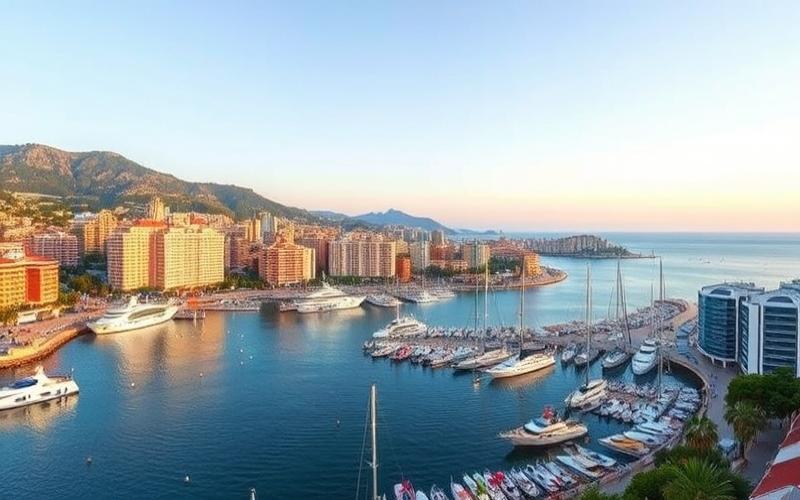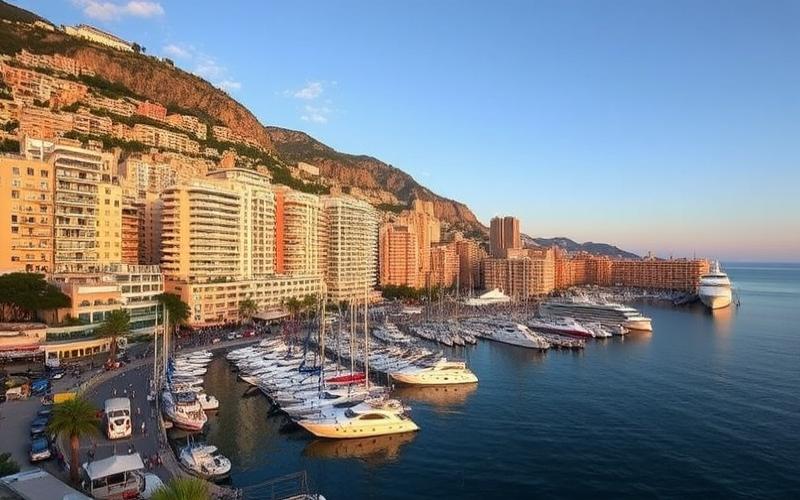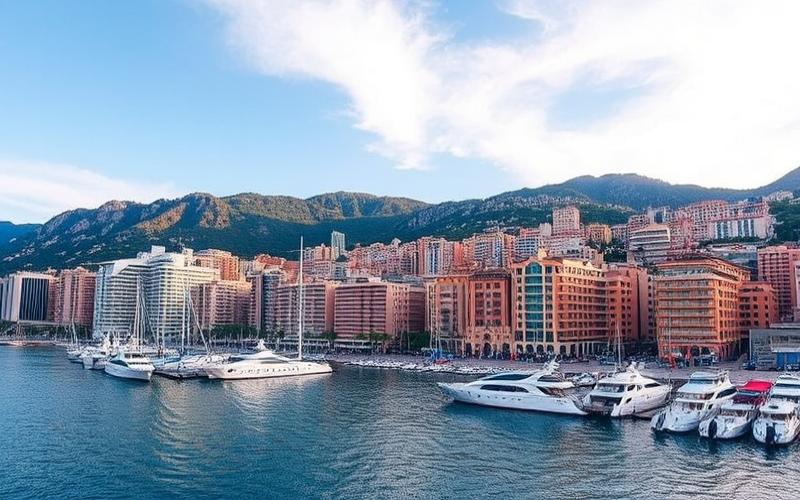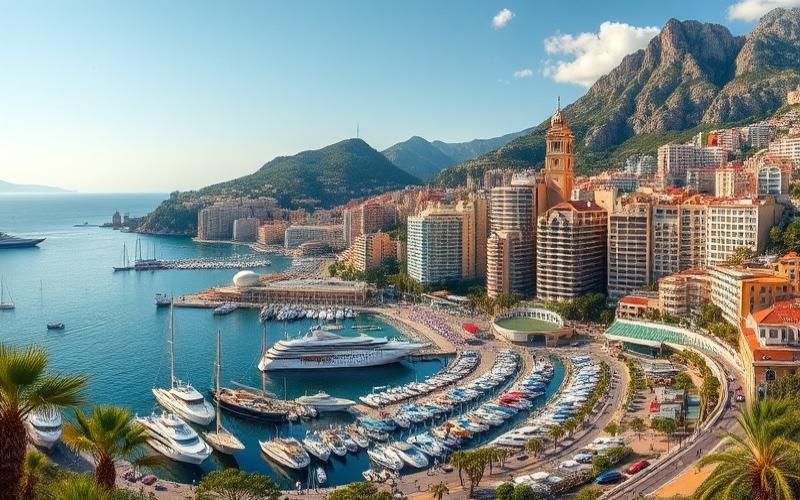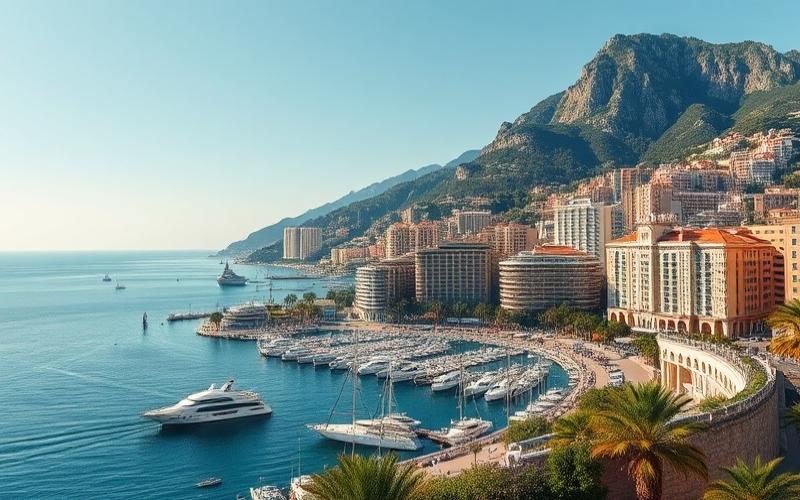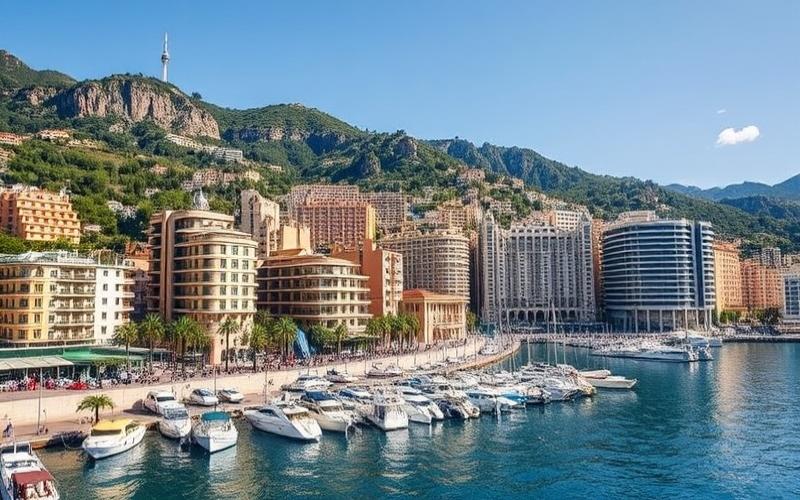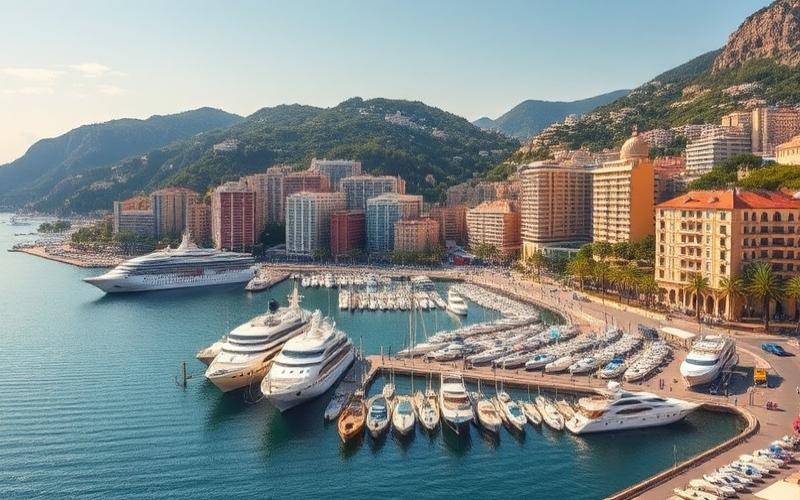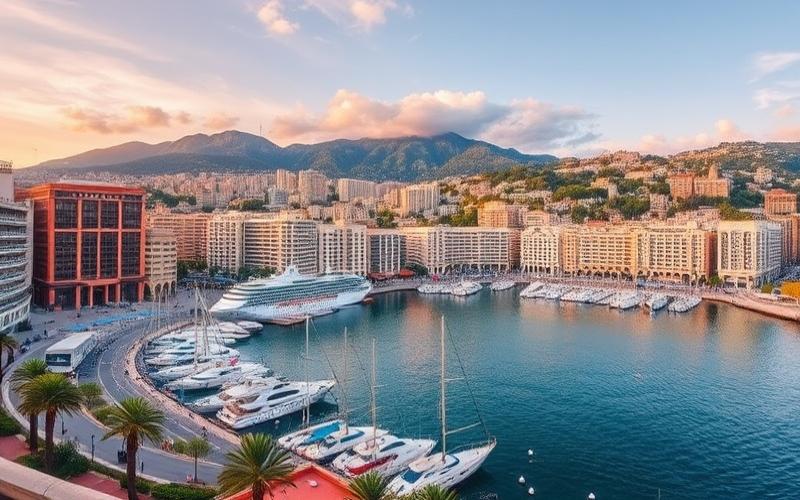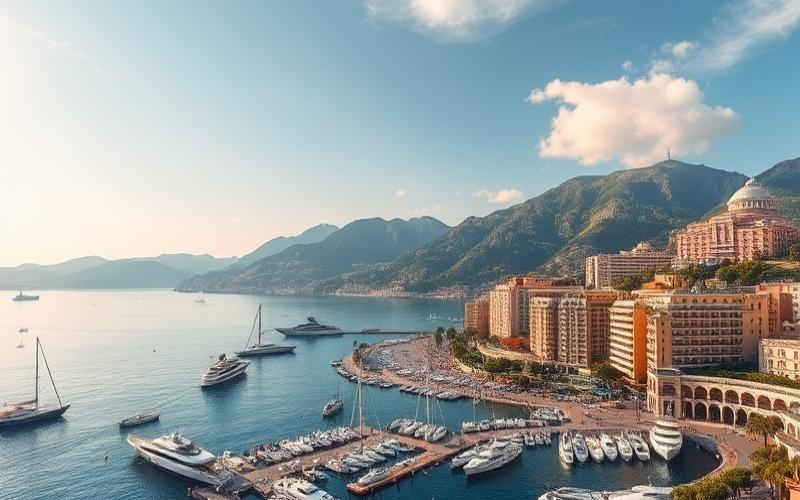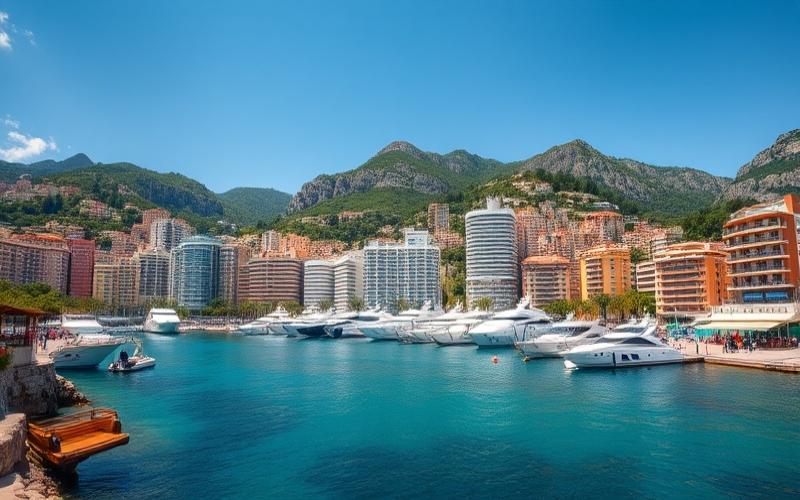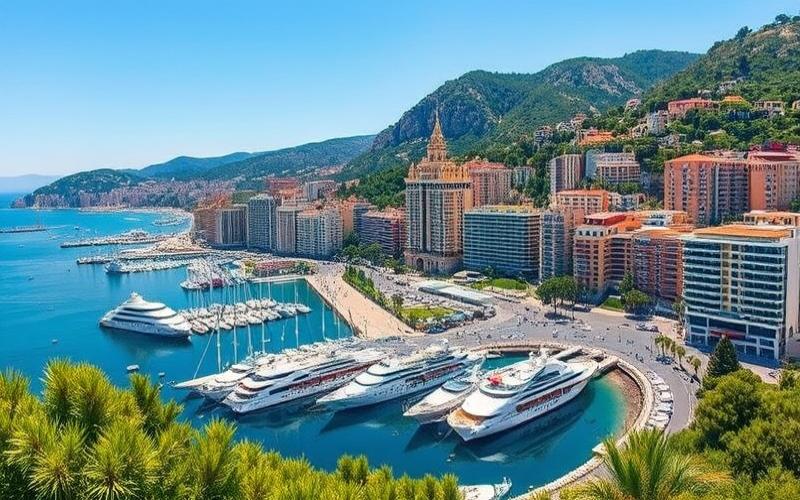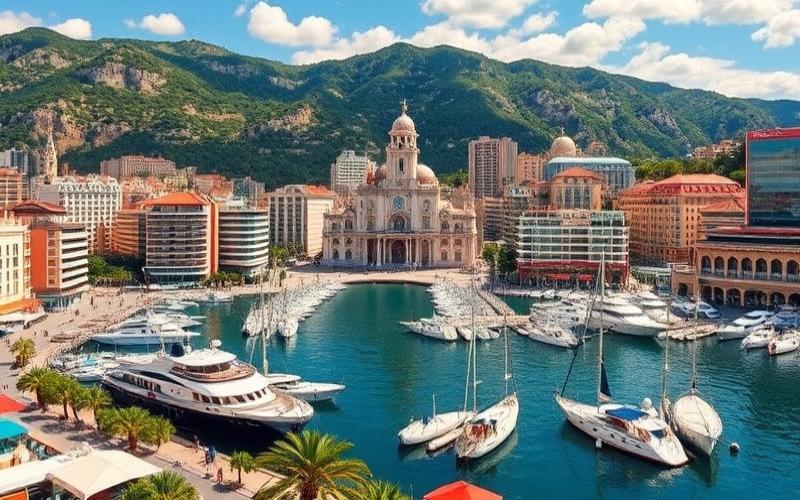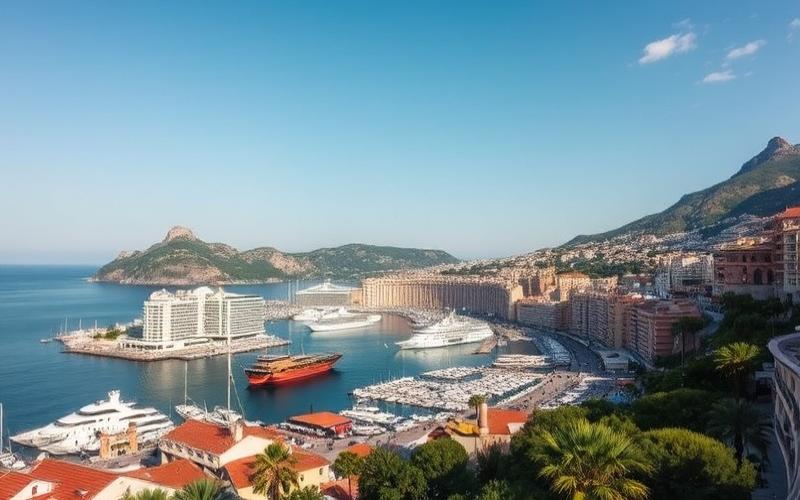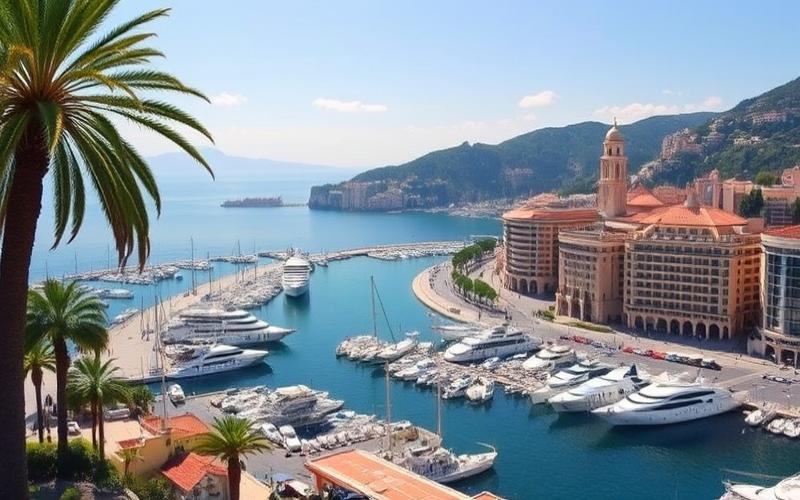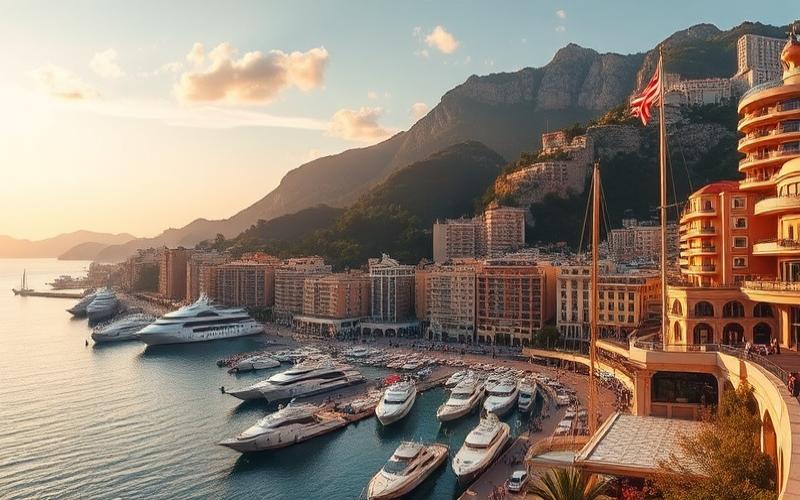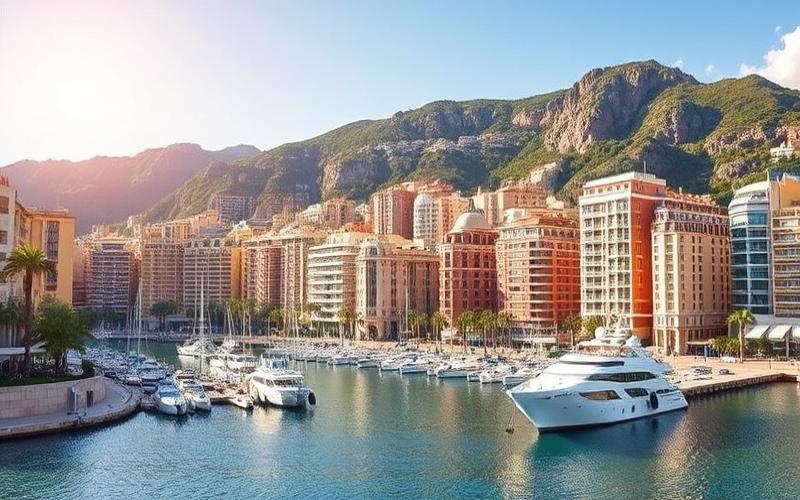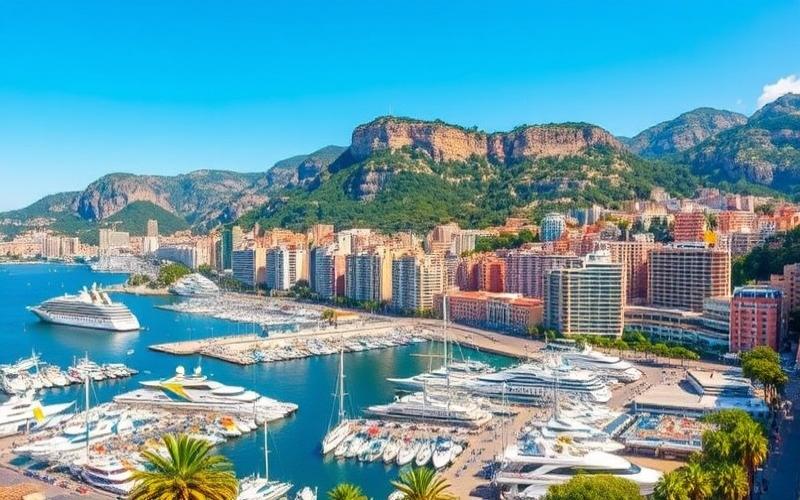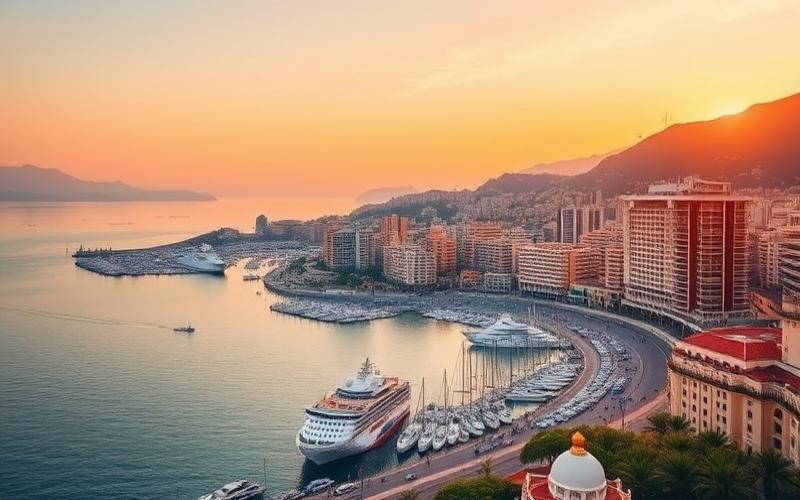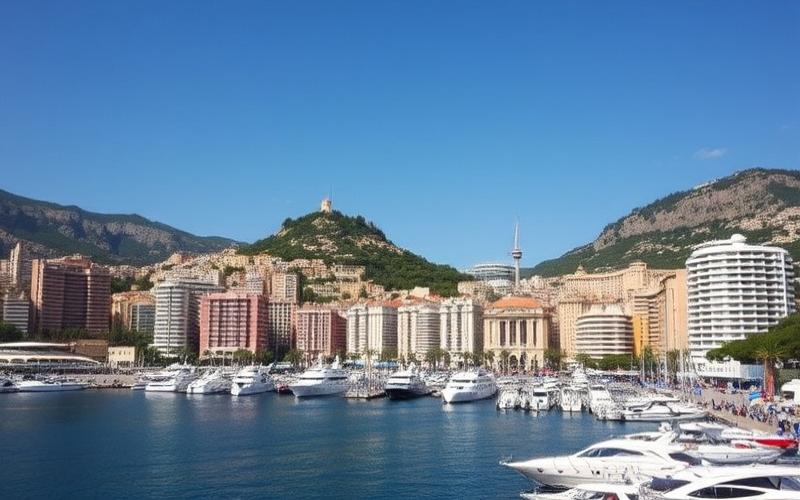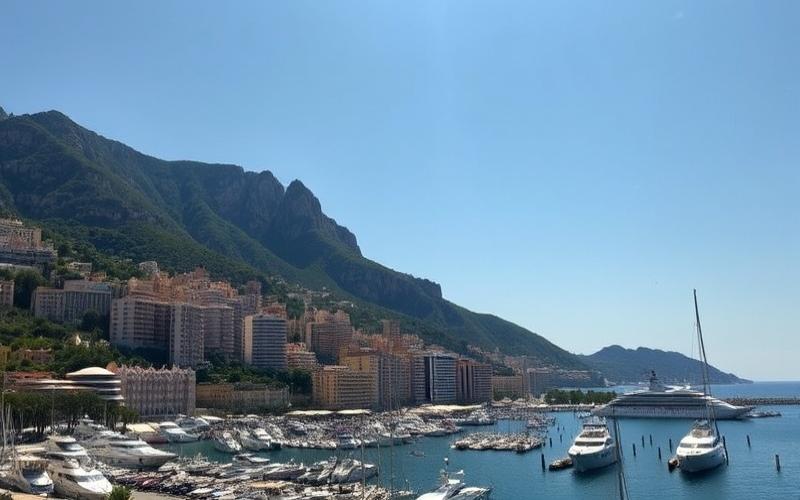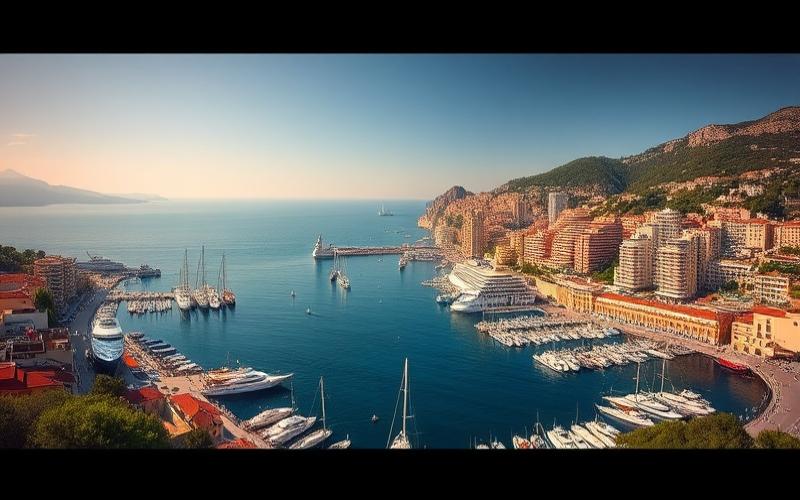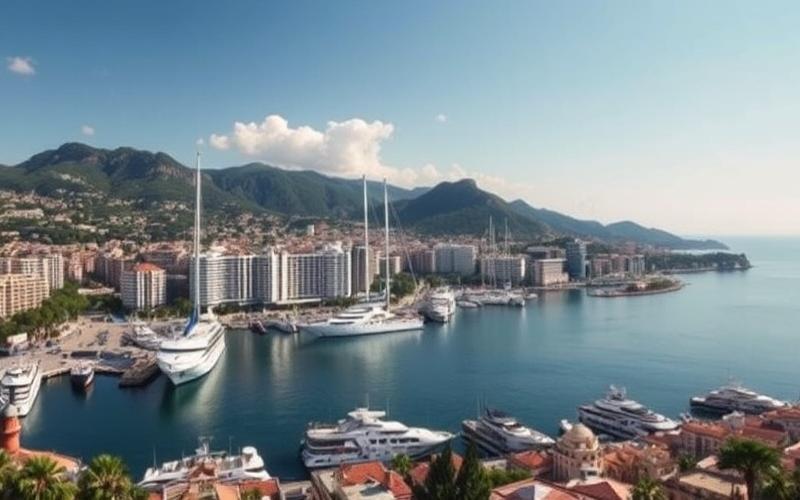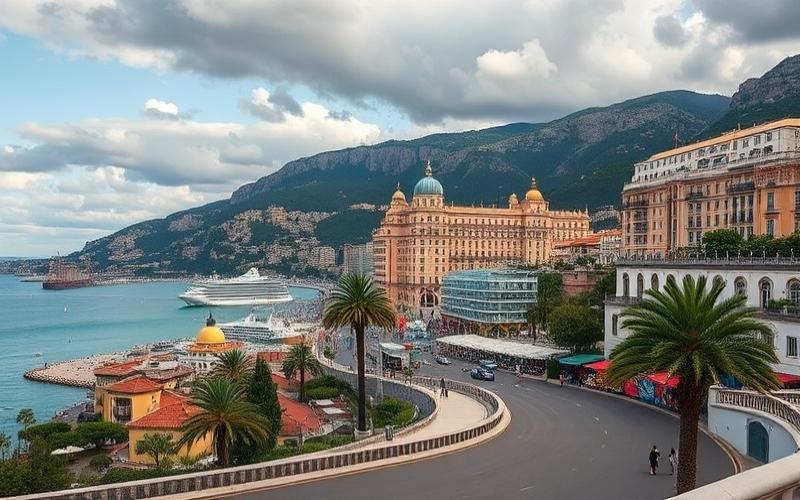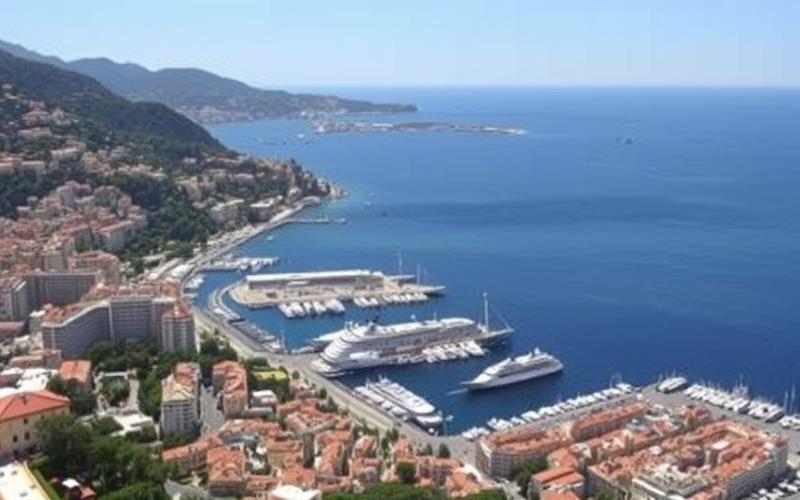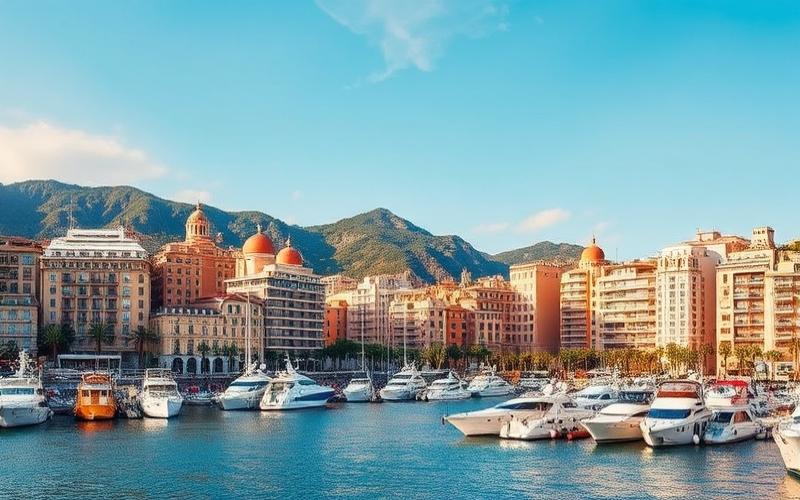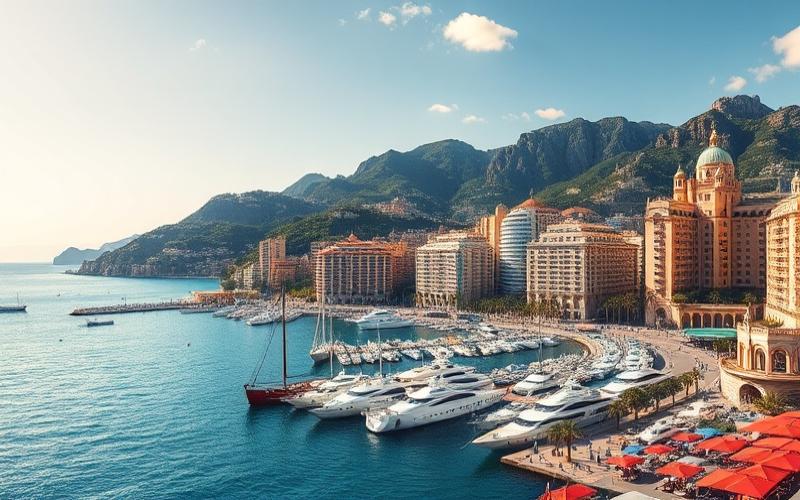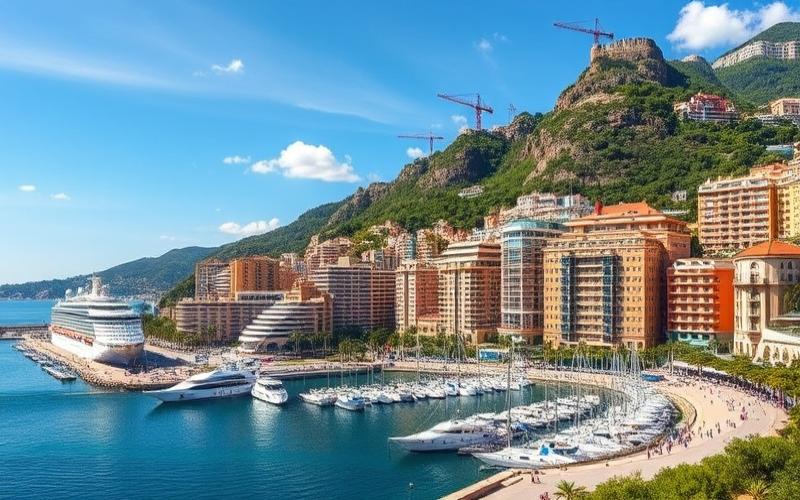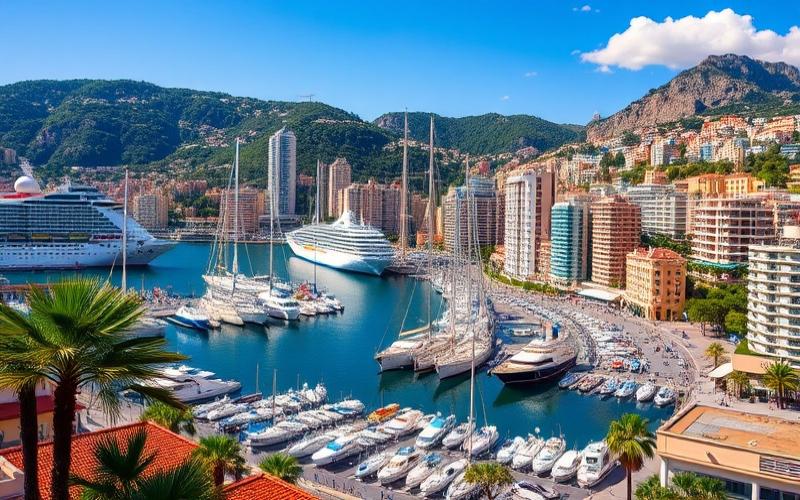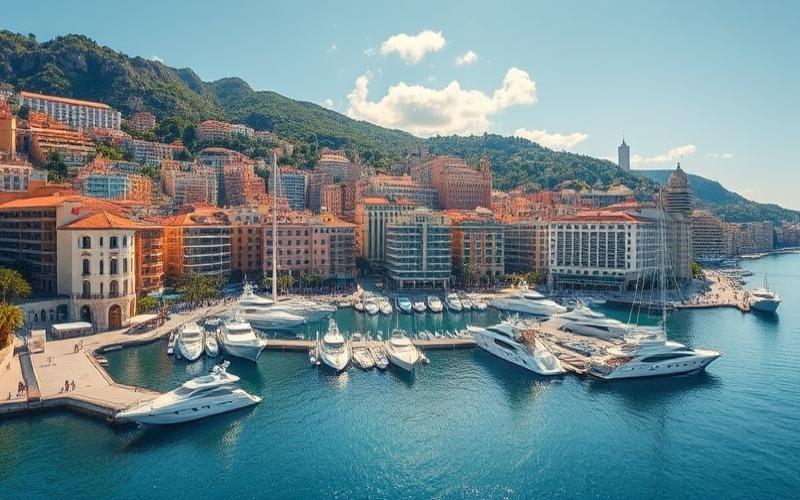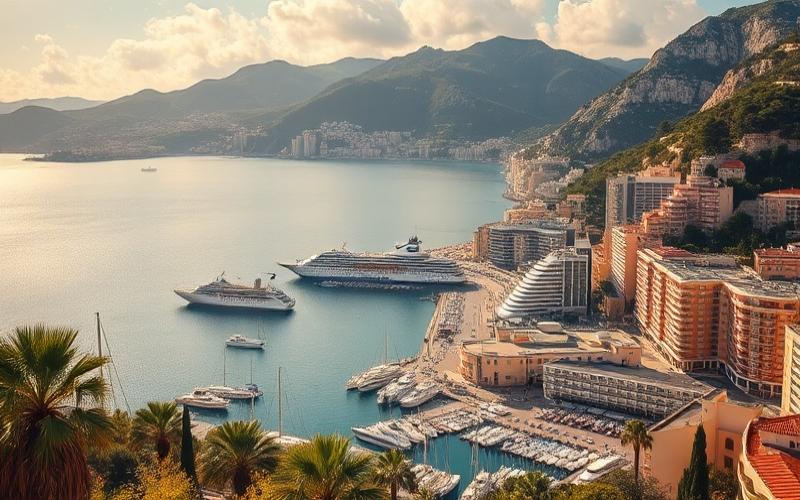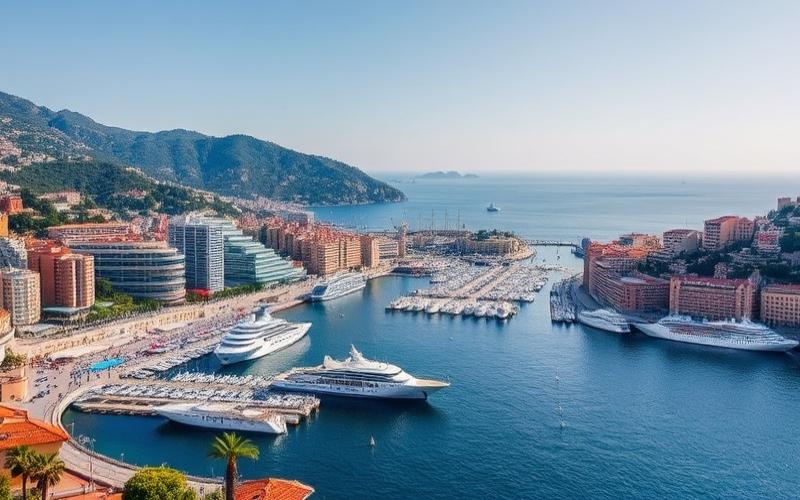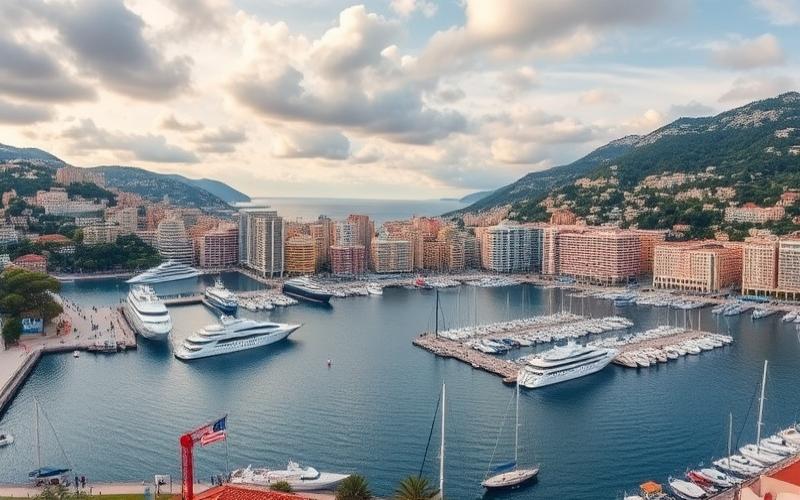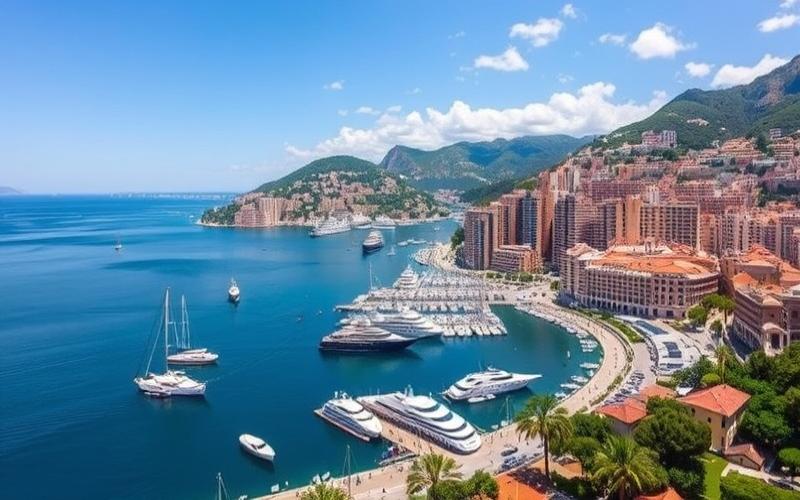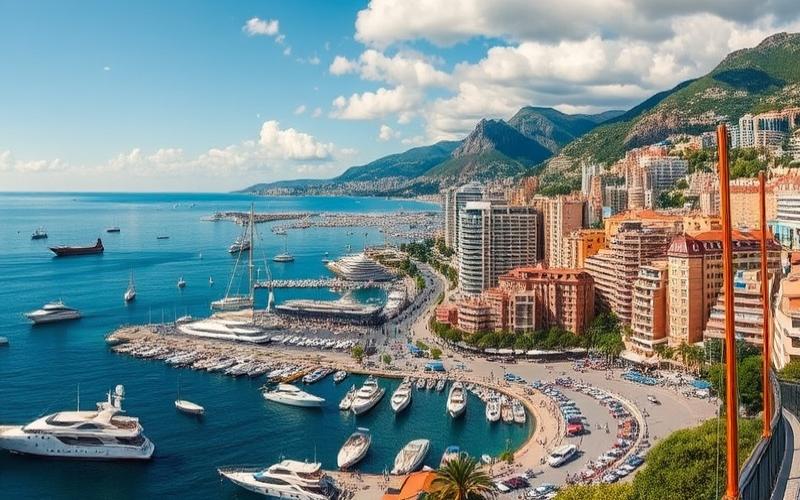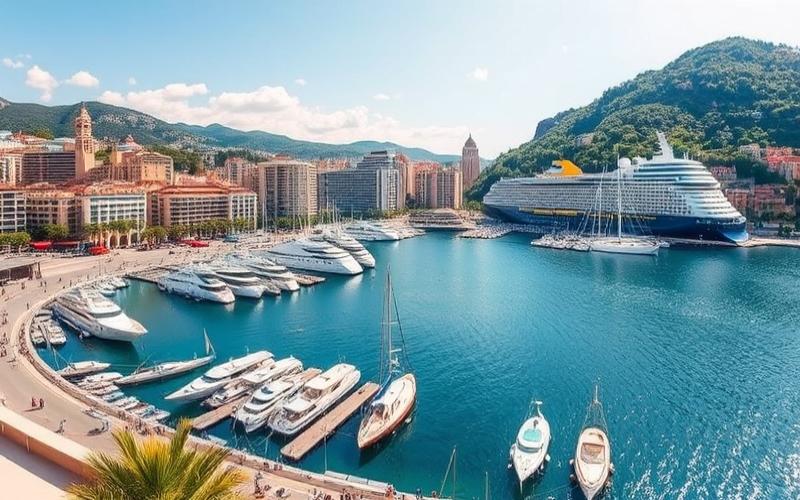
 Published on and written by Cyril Jarnias
Published on and written by Cyril Jarnias
Airbnb vs Long-Term Rental in Monaco: A Strategic Analysis
When considering real estate in a unique enclave like Monaco, the comparison between Airbnb and long-term rental becomes a fascinating subject, both financially and strategically.
This article aims to explore the dynamics of profitability by city, taking into account the specificities of the Monegasque rental market characterized by strong international demand and prices often at global peaks.
By analyzing various parameters such as occupancy rates, potential seasonal income, and regulatory constraints, we aim to provide detailed insight that could guide property owners and investors in optimizing their real estate assets in the heart of this Mediterranean micro-state.
Good to Know:
The Monegasque real estate market presents unique characteristics in Europe, with high population density and constant demand for both short-term and long-term rentals.
Yield Comparison: Airbnb vs Long-Term Rental in Monaco
| Criterion | Airbnb Rental (Short-Term) | Long-Term Rental (Traditional) |
|---|---|---|
| Potential Gross Yield | Higher, especially during peak season | Lower but stable year-round |
| Occupancy Rate | 75–90% in peak season; 90% annually if well-located | |
| Average Rent / Night or Month | Nightly: significantly higher than monthly pro rata, especially during events or tourist peaks Example: during Monaco Grand Prix, rates can triple | Fixed monthly rent known in advance |
| Management/Maintenance Costs | High: frequent cleaning, guest check-in/out, platform fees (~15%), possible tourist tax, quick maintenance Often requires delegation to a paid concierge service | Limited: mainly routine maintenance between tenants Simplified management |
| Seasonality/Events | High income volatility: peaks during major events (F1 Grand Prix, Yacht Show), significant lows off-season | Minimal sensitivity to seasonality |
| Financial Security | Unpredictable income depending on period; dependent on tourist flow and reviews | Regular and secure income through long lease |
| Monaco Regulatory Constraints | Significant restrictions: maximum number of rentable days/year possible. Some condominiums prohibit or strictly limit short-term rentals. Requires prior declaration to authorities. Possible fines for violations. | Standard Monegasque lease regulations; minimally restrictive for owners. |
Main Factors Influencing Yields
– Strong tourist appeal: Monaco attracts high-end clients willing to pay premium prices during major international events.
– Demand surges during periods like the F1 Grand Prix or Monaco Yacht Show (revenues up to three times higher than traditional rentals during these periods).
– Off-season: occupancy rates drop significantly; some owners temporarily switch to long/mid-term rentals to smooth cash flow.
Typical Concrete Example Observed in Comparable Tourist Micro-Markets
A studio near the center can generate three times more in peak season than an equivalent annual rental, but with an occupancy rate that can fall below 40% once tourist influx subsides.
Key Points Regarding Net Profitability
– Additional costs (systematic cleaning, Airbnb/concierge commissions) significantly reduce the displayed gross yield compared to long-term.
– Regulatory risk is not negligible in Monaco where some residences completely prohibit Airbnb.
– Financial flow stability remains significantly higher with a traditional residential tenant.
Summary Overview
Short-term rentals like Airbnb maximize income during tourist peaks and can achieve a higher annual gross yield – potentially between +2% and +5% compared to long-term in some exceptional years.
However,
the high volatility linked to seasonality/events and local legal constraints require caution in this strategic choice.
Conversely,
long-term rental offers increased financial stability but often caps around 3–5% net annual yield in this ultra-competitive market.
Owners must therefore choose between maximizing occasional yield under strong constraints (Airbnb) versus sustainable asset security (traditional rental).
Good to Know:
In Monaco, owners opting for Airbnb can benefit from a higher average nightly rent, up to €250, but must contend with variable occupancy rates depending on the season and local events like the Grand Prix, which can significantly boost demand. Conversely, long-term rental offers stable income, with an average monthly rent around €4,000, without the ongoing management and maintenance efforts required by seasonal rentals. Regulations in Monaco, particularly regarding tourist accommodations, influence Airbnb profitability, often involving additional costs in taxes and professional management. Case studies show that Airbnb yields can exceed those of long-term rentals during peak season, but the consistency of income and reduced costs often favor traditional rentals in the long run.
Analysis of Seasonal Rental Profitability in Monaco
| Criteria | Seasonal Rental (Airbnb) | Long-Term Rental |
| Average Price Per Night | €300 to €600 (studio/one-bedroom apartment) €800 to €2,000 (luxury apartments, peak season) | |
| Average Occupancy Rate | 50–70% annual 85–95% in peak season (May-September, F1 Grand Prix, summer) | |
| Average Monthly Revenue | Studio: ~€5,000 to €10,000/month (varies by period and occupancy rate) | |
| Average Monthly Rent | Studio: €3,500 to €4,500 2-room: from €6,000/month | |
| Management/Maintenance Fees | – Airbnb platform fees ~3–5% – Professional cleaning after each stay (~€50–150) – Higher charges due to frequent turnover – Optional rental management: up to 20% of gross revenue | – Less turnover thus reduced maintenance – Standard recurring charges – Agency fees if management delegated (~5–7%) |
| Specific Regulations | Mandatory declaration to Monegasque authorities. Tourist rentals are strictly regulated; some buildings prohibit short-term rentals. Law n°1.235/1.291 applies mainly to the protected market but the free sector remains regulated for commercial and tourist uses. | Contracts subject to local law with mandatory registration. Some laws protect historical residential tenants in the older housing stock. |
| Taxation & Local Taxes | No income tax or property tax for individuals. Registration duty: 1% of annual rent + charges for any signed contract. | Identical – no additional specific taxes on classic residential rental income. |
| Current Tourist Demand | Very strong in peak season and during major international events. Significant drop between November and February except for occasional events. | Structurally stable demand, fueled by scarcity of permanent residential housing in Monaco. |
Main Periods
- Peak season: May-September (+ F1 Grand Prix end of May)
- Low season: November-February
Recent Evolution of the Monegasque Real Estate Market
- Continuous price increase (+5 to +8 %/year depending on neighborhoods over the past three years).
- Extreme tension on available supply.
- Properties suitable for short-term rentals are becoming scarcer, supporting prices.
Direct Comparison of Potential Net Profits
For a studio or small apartment located in a building accepting short-term rentals:
- A rental via Airbnb generally generates between 30% and sometimes up to twice as much gross revenue as a long-term rental if the occupancy rate remains above or equal to 65%, especially during peak season.
- However, one must deduct:
- Higher operational costs (frequent cleaning, platform fees),
- Increased risk of vacancy off-season,
- Sometimes restrictive or changing regulations depending on the building.
Conversely:
- Long-term rental ensures total cash-flow stability with little rental vacancy,
- Lower recurring fees,
- And fewer administrative uncertainties.
In conclusion:
In a context where regulations clearly permit this type of activity in the concerned building, annual net profitability can remain higher via Airbnb—often between +15% and +40% compared to a classic lease—provided the property is attractive year-round. But this strategy involves more complex management as well as a non-negligible regulatory risk. To maximize yield AND legal/fiscal security, many still favor long-term rental despite its lower but regular yield in this very tight micro-market.
Good to Know:
In Monaco, the profitability of seasonal rentals via Airbnb compares favorably to that of long-term rentals, despite notable differences in fees and regulations. The average nightly rate for an Airbnb is around €250 with a 70% occupancy rate in peak season, potentially leading to higher monthly revenues than traditional leases. However, short-term rentals require increased management costs, including frequent cleaning and maintenance, while long-term rentals reduce these costs but involve fixed monthly rents. Monaco imposes strict rules and specific taxes for tourist rentals, which differ from impositions on long-term residences, which can affect net profitability. In 2023, with rising tourist demand and real estate prices, seasonal rental appears more lucrative, especially during major events like the F1 Grand Prix, but requires active management and attentiveness to seasonal variations to maximize potential net profits.
Decision Aid: Numerical Data for Investors in Monaco
| Criteria | Airbnb Rental (Short-Term) | Long-Term Rental |
| Average Occupancy Rate | 60–70% in peak season | 95% year-round |
Short-term rental via Airbnb offers superior profitability during tourist peaks thanks to dynamic and flexible pricing. However, this profitability is highly dependent on the occupancy rate, which drops significantly off-season.
Operational costs are significantly higher with Airbnb (frequent cleaning, increased maintenance…), which sometimes erodes the initial gap observed in gross yield.
Airbnb Advantages:
- Higher potential during peak season
- Flexibility for personal use or change of use
- Rapid adaptation to pricing trends
Airbnb Disadvantages:
- Time-consuming daily management or need for professional concierge service
- Highly variable income depending on the period
- Strong dependence on global tourism
Long-Term Rental Advantages:
- Financial security through stable leases
- Less need for regular intervention
- Budget predictability
Disadvantages:
- Lower gross profitability compared to strong months with Airbnb
- Binding contracts limiting owner flexibility
The Monegasque real estate market remains extremely tight: rental demand is strong year-round thanks to local economic dynamism and attractive tax status. This situation maintains high levels in both rents and purchase prices.
Local investors regularly testify that:
“For some high-end properties located on the waterfront or in the Carré d’Or, it is not uncommon for an investment via a platform like Airbnb to yield twice as much as a classic lease during July/August — but one must accept several vacant weeks off-season as well as much more logistics.”
Others, however, prefer “the peace of mind offered by a long-term annual lease despite a theoretically less spectacular yield.”
Frame Your Final Decision Around:
- The stability sought
- Your personal availability
- Your appetite for risk related to tourist volatility
| The optimal choice will therefore depend primarily on the investor profile — security-oriented versus opportunistic — and especially on the time available or allocated to daily management. |
Good to Know:
In Monaco, investors wondering whether to opt for Airbnb or a long-term rental must consider several numerical factors: occupancy rates for Airbnb peak at about 80% during peak season, while long-term rentals maintain stability around 95% year-round. Average monthly revenues for Airbnb are €5,000 compared to €4,000 for classic rentals, but this includes management fees of about 20% as well as higher local taxes. A local investor, for example, noted that Airbnb’s seasonal fluctuations can lead to lean months, while long-term rental offers more constant income security. Current trends show an increasingly restricted real estate market, which could influence a shift towards rental solutions offering more predictable profitability.
Impact of Rental Contracts on the Monegasque Market
The impact of rental contracts on the Monegasque market is distinguished by a unique dynamic, shaped by land scarcity, strong demand for luxury housing, and constant tourist appeal.
Comparison of Generated Economic Flow
| Criterion | Airbnb Rental (Short-Term) | Long-Term Rental |
|---|---|---|
| Potential Monthly Revenue | High during tourist peaks | Stable but often lower |
| Average Annual Occupancy | Variable depending on seasonality | Stable year-round |
| Management and Turnover | Demanding (frequent check-in/out) | Less burdensome |
| Gross Profitability | Potentially higher | Less exposed to rental vacancy |
- Airbnb rentals generate a very high economic flow during major tourist periods; however, this profitability is volatile and heavily dependent on the Monegasque event calendar.
- Long-term rental ensures financial stability but with a generally more moderate yield than short-term rentals in this high-end context.
Effect of Real Estate Fluctuations on Contracts
- The continuous increase in price per m², particularly in the Carré d’Or (up to €229/m² for large apartments) and Larvotto (around €115/m²), accentuates the preference for long-term rental among some owners seeking to secure their income against uncertainty.
- In Monaco, any upward or downward movement immediately impacts expected yield: during a rapid market rise, some owners may favor short-term to optimize their rental income by regularly adjusting their pricing.
Data Illustrating Preferences
- Large apartments (3 rooms and more) are now those renting at the highest price per square meter in Monaco. This phenomenon reverses the trend observed elsewhere where small surfaces often display the maximum price per square meter.
- Neighborhoods like Carré d’Or remain preferred for any type of rental thanks to their prestige and record rents observed.
- The growing ultra-wealthy population clearly favors sustained demand for luxury properties in traditional or seasonal rentals.
Potential Impact of Local Regulations
- Any regulation aimed at limiting or strictly regulating the Airbnb supply could significantly reduce its relative profitability, thus pushing more owners towards classic leases.
- Similarly, if Monaco were to strengthen its legislative arsenal against rental vacancy or impose more tax obligations on short-term rentals, this would rebalance even more clearly in favor of long-term.
Specific Monegasque Dynamics
Key Points:
- The confined territory means that each available apartment has significant weight on the overall supply: even a slight regulatory evolution can have a multiplied effect on the entire market.
- The strong international appetite for high-end housing mechanically drives up all types of rents—both short and long—well beyond the rest of the European real estate world.
Tourist Influence:
Decision-making revolves around:
- Annual peaks linked to international events (F1 Grand Prix, Yacht Show…) which temporarily boost interest in Airbnb,
but also
- A resident clientele whose expectations grow with each new ultra-luxury wave detected by recent statistics (+7% UHNWI between 2022 and 2023).
The trade-offs between short-term contracts like Airbnb and long leases therefore depend not only on local real estate cycles but also directly on future regulatory expectations, the growing socio-economic profile of new arrivals, and finally, the limited structural capacity that Monaco imposes on any unmanaged speculative evolution.
Good to Know:
In Monaco, the rental market is strongly influenced by the limited size of the territory and high demand for luxury housing, leading to a unique dynamic between short-term Airbnb rentals and long-term contracts. Airbnb rentals generate significant economic flow thanks to dense tourism, especially during international event periods, while long-term rentals offer financial stability to owners, facing a real estate market often subject to fluctuations. Statistics show that Monegasque owners often prefer long contracts to ensure continuity, although the high yield of short-term rentals during peak tourist season is not negligible. Local regulations, aimed at protecting the integrity of the residential market, play a crucial role by sometimes limiting the potential profitability of platforms like Airbnb. Owners and tenants must navigate between these constraints and opportunities, with informed consideration of the changing conditions of annual tourist demand in the principality.
Disclaimer: The information provided on this website is for informational purposes only and does not constitute financial, legal, or professional advice. We encourage you to consult qualified experts before making any investment, real estate, or expatriation decisions. Although we strive to maintain up-to-date and accurate information, we do not guarantee the completeness, accuracy, or timeliness of the proposed content. As investment and expatriation involve risks, we disclaim any liability for potential losses or damages arising from the use of this site. Your use of this site confirms your acceptance of these terms and your understanding of the associated risks.

